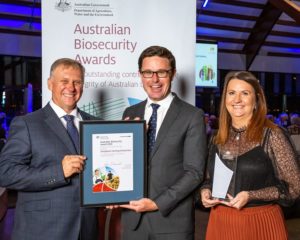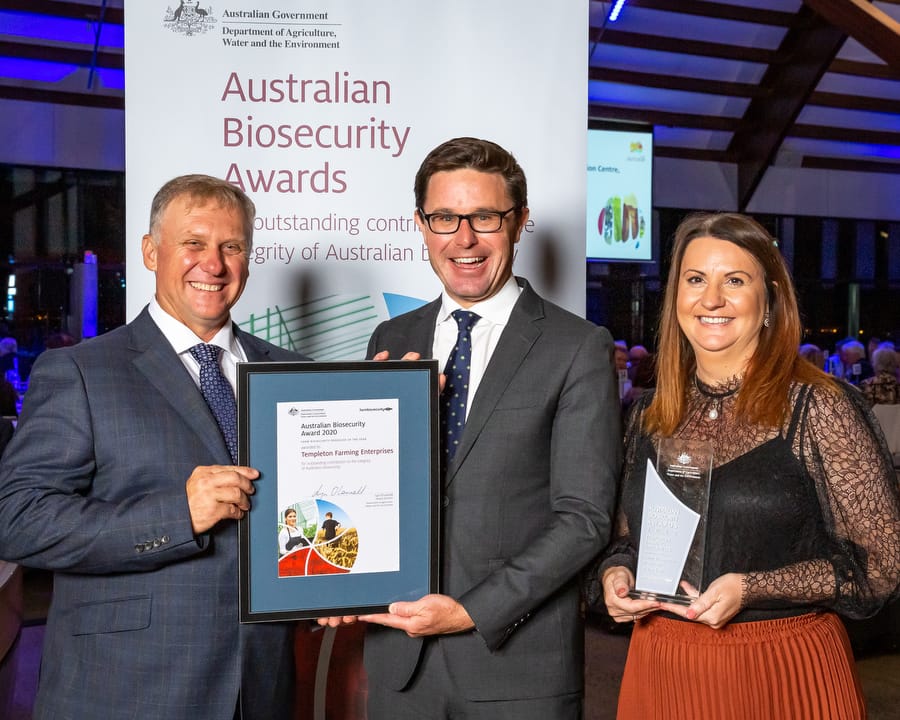
Photo: Left to right – Award winner Shane Templeton; Hon. David Little Proud, Minister for Agriculture, Drought and Emergency Management; and Julie Templeton at the 2020 Australian Biosecurity Awards (Photo credit: Sharon Abrahams, Plant Health Australia).
Eumundi, Queensland ginger grower and Australian Ginger Industry Association (AGIA) president, Shane Templeton, Templeton Farming Enterprises was acknowledged at the ABARES Outlook Conference Dinner in March 2020.
Mr Templeton was honoured to receive the award and to raise awareness of a challenging disease. According to Mr Templeton some growers reported losses of one-third of yearly production in the early 2010s with Pythium myriotylum spreading at a rate of 10 square metres a day.
Mr Templeton said the industry’s biosecurity efforts – based on non-chemical voluntary quarantine of infected fields and farms – needed a ‘one-in-all-in’ industry approach.
“It took seven years to gain the knowledge and information we needed to tackle the issue and anyone who didn’t adopt the biosecurity measures is not in the ginger business anymore,” he said.
“We grabbed any information we could from Department of Agriculture and Fisheries Queensland (DAF) and research funded by AgriFutures Australia.
“Spore counts seemed to keep increasing and the industry couldn’t survive by adopting biosecurity to a small degree, we had to go to the enth degree to head this thing off.”
Shane’s sister Kylie Templeton, also a third-generation ginger grower and part of Australia’s largest ginger operation, Templeton Ginger, reached out to growers in Japan where Pythium had been a problem and the research yielded good advice.
“One of the valuable things the Japanese growers said is ‘you will never eradicate it, you will have to learn to manage it’,” said Mr Templeton.
“Japanese growers went through a Pythium outbreak in the 1950s, so they look for it on a daily basis.











